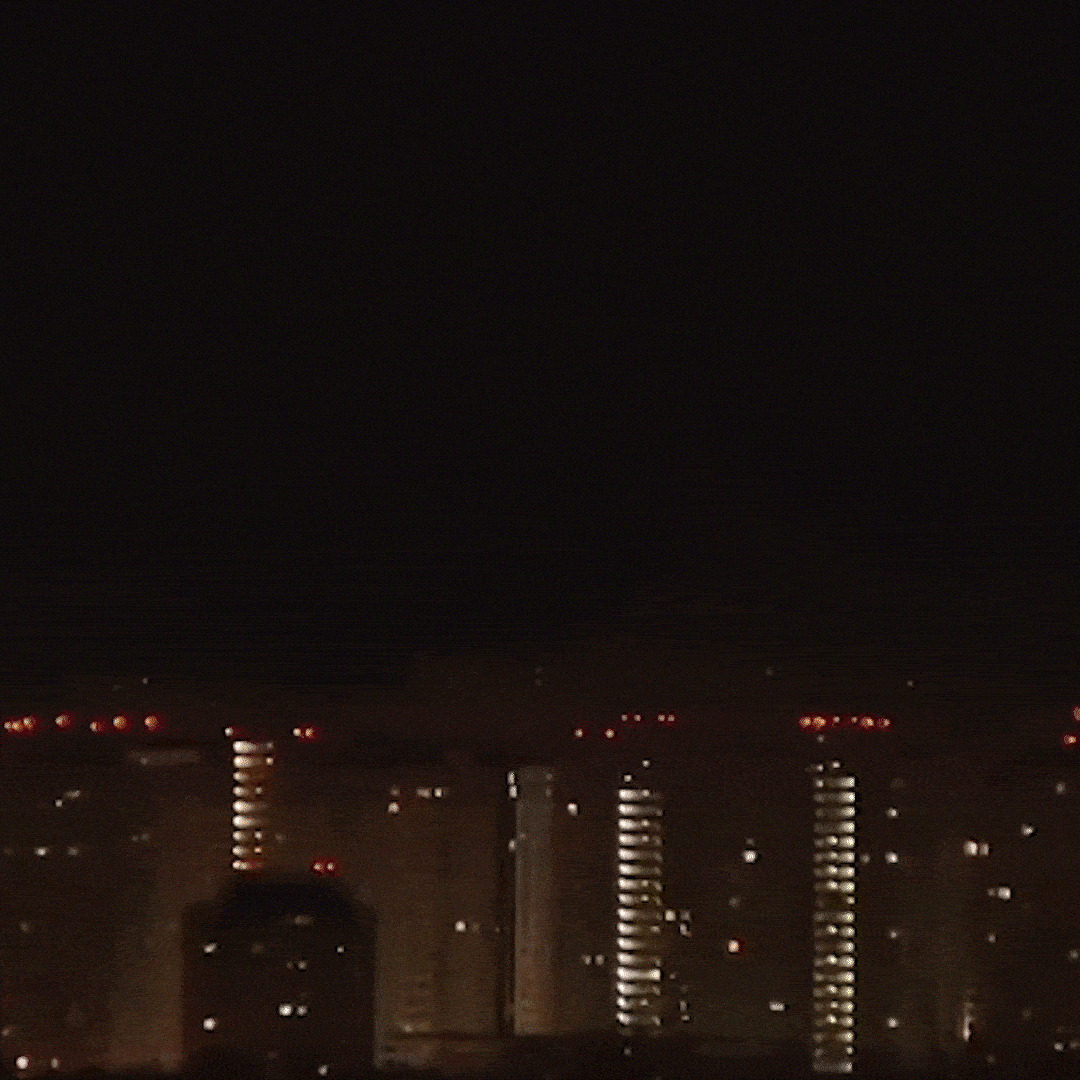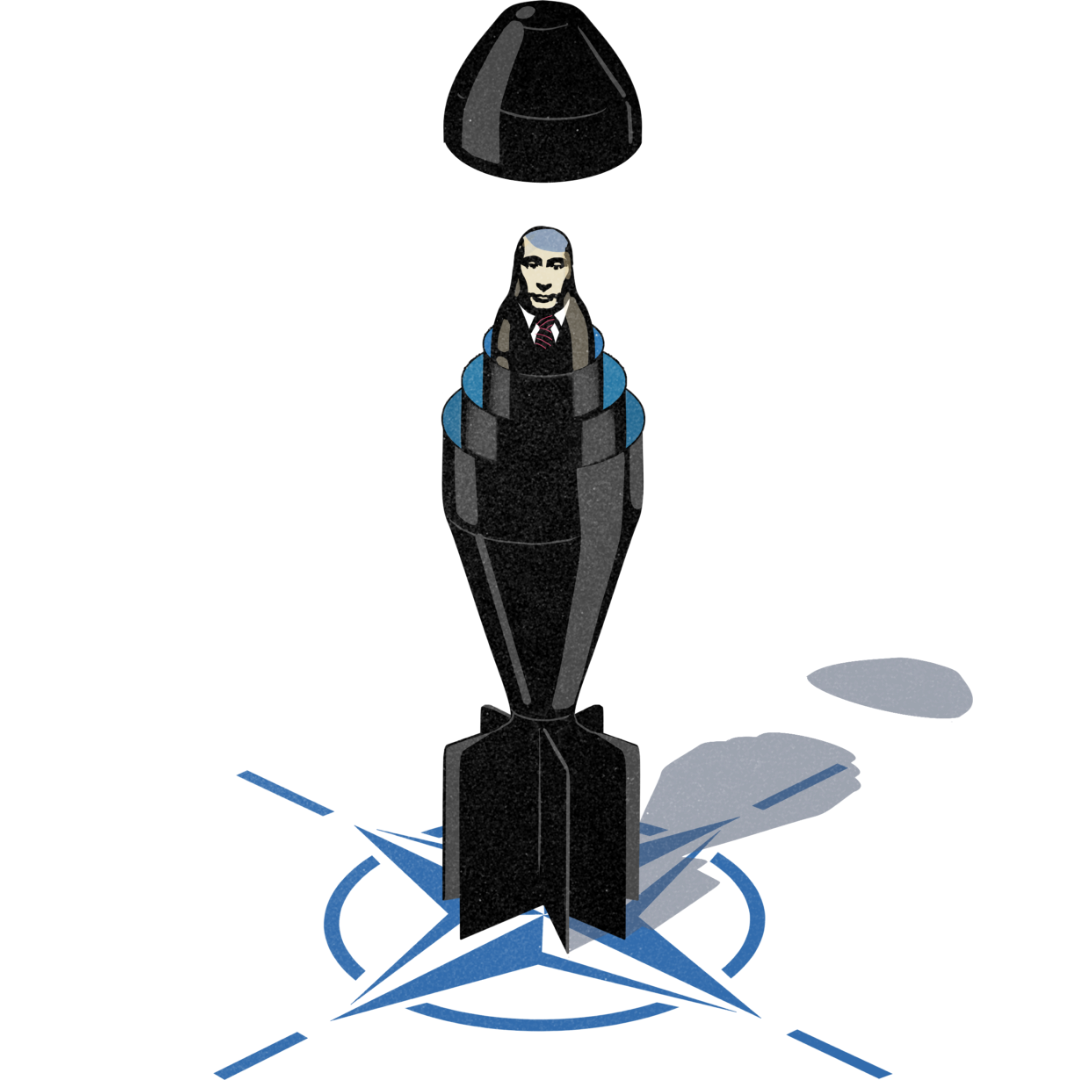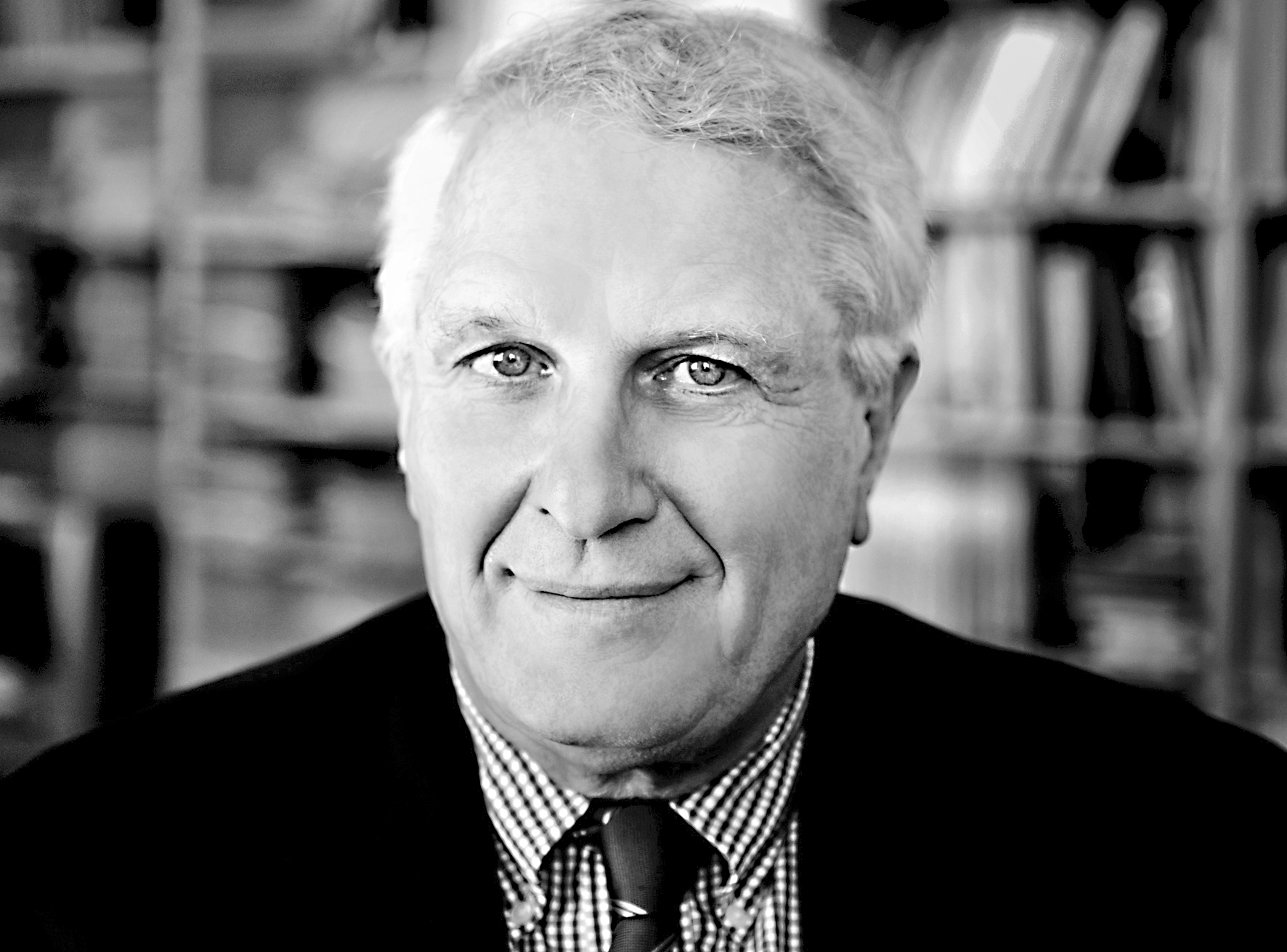
WAR IN EUROPE
Braving the cold for Kyiv?
All of a sudden, the West remembers Schiller’s observation: “The most pious man can’t stay in peace, if it does not, please his evil neighbour.” There is more than just Ukraine at stake; Europe’s 77-year-old reign of peace, the longest ever, is on the line.
TEXT: JOSEF JOFFE
ILLUSTRATION: EMMANUEL POLANCO/SEPIA

WAR IN EUROPE
Braving the cold for Kyiv?
All of a sudden, the West remembers Schiller’s observation: “The most pious man can’t stay in peace, if it does not, please his evil neighbour.” There is more than just Ukraine at stake; Europe’s 77-year-old reign of peace, the longest ever, is on the line.
TEXT: JOSEF JOFFE
ILLUSTRATION: EMMANUEL POLANCO/SEPIA
“You may not be interested in war”, Leon Trotsky is said to have said, “but war is interested in you.” This sums up the horrific reality evident to Germany and the West since the start of the year. After 77 years of peace among the major powers, the longest in the history of nations, the unthinkable has returned. Vladimir Putin is attacking a neighbouring state, breaking all the taboos. He is threatening the use of nuclear weapons, razing towns and cities and bombarding defenceless people. The West does not come out whiter than white in this affair either – not because of what it has done, but because of what it has not done. Putin began redrawing borders in 2008 when he subjugated Georgia and occupied two of its provinces. The West voiced its disapproval, but took no action. Then came Crimea in 2014 – supposedly because it had always been part of Russia, or so they say. Admittedly, Catherine the Great did absorb the peninsula into Russia in 1783; then it happened again in 2014. Ineffective sanctions ensued.
Finally, the protracted foray into Ukraine began. The south east (the Donbas region) was taken and placed under Russian control. The pressure on Kyiv grew by the day, Putin’s forces massed on the border. The West, especially Germany, had forgotten their Carl von Clausewitz: War is the continuation of politics by other means. Economic sanctions were tightened, but other means remained off the agenda – particularly when it came to helping the beleaguered Ukrainians to bolster their defences.
War is the continuation of politics by other means. Economic sanctions were tightened, but other means remained off the agenda – particularly when it came to helping the beleaguered Ukrainians to bolster their defences.
Cause for shame
No-one, not even the US, delivered arms, nor did the West implement a strong deterrent at NATO’s eastern border. A few battalions stayed there that were not combat ready but were only supposed to form a “tripwire“. The “peace power Germany” should be ashamed. One of its arguments is as common as it is transparent: weapons only prolong war; so please keep still, dear Ukrainians. And another one: we committed atrocities in Russia during the Second World War; we bear the moral responsibility for that. True: but the same Wehrmacht and SS had the blood of countless Ukrainians on their hands as they advanced to Moscow. The moral was selective, although it was also based on pragmatism: do not poke the bear under any circumstances! Those 5,000 helmets became a sick joke as the Russian divisions kept tightening the vice.
However, this failure has to be taken in context. Even if it wanted to, how would the West continue its politics by other means? The German armed forces can’t even defend their own country. How could they? With tanks that can’t move, Tornado bombers fit for the scrap heap, submarines languishing in the domestic repair docks? Germany has been cashing the “peace dividend” every year since 1994 when the last Russian soldiers left central Europe, it has let the military deteriorate and celebrated the culture of restraint as the epitome of morality.
The narrative now is that Putin is somehow irrational or crazy. He may have got it wrong, in that the Ukraine Blitzkrieg failed to materialise. But a candidate for the psychiatrist’s couch? He spent years weighing up the West and found it lacked backbone. Why do we question the mind of a man who carefully probed and measured before coming to the conclusion that the time was ripe for restoring the Soviet empire? Germany, a country that could tip the scales of the balance of power, was found especially wanting, given its strategic dependence on Russia: the source of 55 percent of its gas and 45 percent of the country’s oil. Who in Germany would want to brave the cold for the sake of Kyiv? Putin could see that Federal Chancellor Angela Merkel held onto Nordstream 2 until the end. Meanwhile ex-Chancellor Gerhard Schröder was providing PR for Putin.
In a nutshell: to act is to succeed. Or: strike while the iron is hot. It’s Ukraine that is paying the price in blood. If that sounds overly moralising, consider it from the realpolitik perspective. Putin has not only attacked a weak country but also the apparently everlasting European reign of peace. He is bringing us back to the future of the 20th century, when the imperialists – Japan, Nazi Germany, Mussolini’s Italy – tried to subjugate entire continents with unspeakable brutality. Hundreds of millions of dead, mainly civilians, paid the price.

But Putin has got it wrong – as have all despots throughout history from Bonaparte to Hitler, whose initial successes led to overconfidence.

But Putin has got it wrong – as have all despots throughout history from Bonaparte to Hitler, whose initial successes led to overconfidence.
Take what you can
Now Putin wants a secure sphere of influence from the Caspian Sea to the Baltic. It didn’t go badly after Georgia. The coercive leader had recognised the West’s lack of resolve. Why not just keep going? Take what you can. That was Putin’s mistake and that is the best news to come from this cruel war. Seventy years ago, US diplomat George F. Kennan, chief theoretician of the Cold War, compared the United States (and this could be applied to western democracies in general) with a dinosaur, i.e. a huge body with a brain the size of a pin. He rolls around, “in his comfortable primeval mud and pays little attention to his environment; he is slow to wrath—in fact, you practically have to whack his tail off to make him aware that his interests are being disturbed; but, once he grasps this, he lays about him with such blind determination that he not only destroys his adversary but largely wrecks his native habitat.”
Even Switzerland is playing its part
This statement needs to be modified to the extent that the US and democracies did stand up after the invasion, but they didn’t thrash around blindly. The sanctions are real and they can be expected to hurt as they drive Putin’s economy towards bankruptcy. Even perennially neutral Switzerland is playing its part – the country that usually doesn’t mind with whom it does business. Now the weapons are coming – whether directly or indirectly: fighter jets, ammunition, anti-tank and anti-air missiles. Even the Germans are supplying Stingers, those handy weapons that turned the tide against the Soviets in Afghanistan. All gradual and deliberate, but the long-range weapons are yet to materialise, the type that can shoot high-flying jets out of the sky and hit warships in the Black Sea. In the meantime civilians are dying and refugees streaming out of the country. Putin‘s idea of Blitzkrieg is but a pipe dream. An ugly struggle is unfolding against cities and defenceless civilians.
Powerful threats
Events since the speech by German Chancellor Olaf Scholz on 27 February would have been considered an absurd fantasy only in January. Meanwhile, the polls add to the wonder. According to Insa, three quarters of Germans fear Russia will attack more countries. Half of the country advocates a return to mandatory military service. Three fifths want to stop consumption of Russian gas. And two thirds believe the country would be unable to defend itself against Russia. Putin has made the peace power reflect on its status. Who would have thought that at the beginning of the year? Now Putin has reduced the ranks of Russia sympathisers to the AfD and the far-left party “Die Linke”. The shock seems to have reversed fifty years of Ostpolitik. On the other side of the Atlantic, presidents Barack Obama and Donald Trump withdrew troops from Europe, Joe Biden is sending reinforcements.
Can you blame Putin for positioning Russia ever more boldly on the chessboard of power, seeing as the opponent didn’t seem to put up any real resistance? He seemed convinced that the best war is one that you don’t have to fight. All you need is a powerful threat combined with infiltration, auxiliary troops in southeast Ukraine and hybrid warfare. It makes more sense to pick the fruit than to fell the tree. At least that’s how it was before the invasion. But Putin has got it wrong – as have all despots throughout history from Bonaparte to Hitler, whose initial successes led to overconfidence. In the meantime, the West has come to realise that being accommodating – favouring words over weapons – just doesn’t work with Putin. Something Germany had been flat-out refusing to do for years has suddenly become accepted state policy: increase the defence budget to two percent of GDP. And they are throwing in an extra 100 billion of special funding.
No easy pickings
However, the question remains: when do Kennan‘s dinosaurs return to the comfort of the mud? The answer is: when Putin recognises that he is leading his country into the abyss – cut off from trade, investment and technology. When Russia has been “cancelled”. When he grasps that Ukraine with the international community behind it is no easy pickings, and he recognises that he won’t be able to digest the country, if he swallows it with an escalation of evil. Once he has razed every city and driven millions into exile, he will have to feed the people who are left and rebuild the infrastructure. He will have to provide water and electricity – with funds that his impoverished nation does not have. From victor to outcast.
Has Putin miscalculated? A fool who wants to predict the outcome in the midst of the carnage. We only know how a war began, because the West could not stop it. It’s impossible to know how it will end – or for how long the West will stand up and be counted. The West that finds itself suddenly recalling Schiller: “The most pious man can’t stay in peace, if it doesn’t please his evil neighbour.” The next peace movement will come – and the longer Putin’s destructiveness continues, the faster it will be.
Moral principle
Realpolitik and moral politics are now synonymous in the West, which hardly ever happens and explains the current broad centre-right to centre-left coalition. Now realism is also a moral principle, which equates to: words and weapons, peacefulness and deterrence. Just like nature, the system of nations cannot tolerate a vacuum. On the other hand, the West had thought we had arrived at the end of history, at least in Europe, the continent that came within a whisker of destroying itself from 1914–1945. Ukraine is paying the price of that shattered illusion, whether it manages to preserve its independence at frightful cost or disappears into the maw of Russian imperialism. What remains is the simple realisation that the fire brigade must get into position early with full tanks. If you wait until the whole building is ablaze, all that remains are smoking walls – and anger and grief.

Josef Joffe is publisher-editor of the German weekly “DIE ZEIT” and Professor of the Practice of International Affairs and Senior Fellow of the Kissinger Center at the Johns Hopkins School of Advanced International Studies in Washington, D.C.

Josef Joffe is publisher-editor of the German weekly “DIE ZEIT” and Professor of the Practice of International Affairs and Senior Fellow of the Kissinger Center at the Johns Hopkins School of Advanced International Studies in Washington, D.C.
More articles
Wolfgang Gerhardt // A danger to the neighbours
Violence is an established component of the Russian box of tricks. But there is no war in which one wins what the other loses. There is just human suffering for everyone.
Sabine Leutheusser-Schnarrenberger // Putin on trial!
The only way to deal with the brutal and unscrupulous actions of the Russian ruler is to make clear decisions – and to use the full force of national and international justice. That is why Gerhart Baum and Sabine Leutheusser-Schnarrenberger have filed charges against Putin.
Sven Hilgers // Financial weapons
The unprecedented package of sanctions imposed by the G7 in response to Russia’s attack shows how the financial system can be used in geopolitical conflicts. In the future, nations will be more careful to avoid asymmetrical dependencies.
